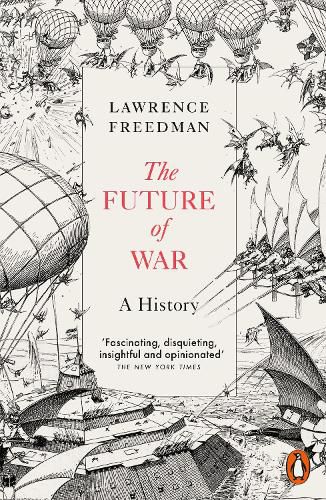Readings Newsletter
Become a Readings Member to make your shopping experience even easier.
Sign in or sign up for free!
You’re not far away from qualifying for FREE standard shipping within Australia
You’ve qualified for FREE standard shipping within Australia
The cart is loading…






A new approach to ideas about war, from ‘Britain’s leading academic strategist’ (Economist)
Where should we look for new dangers? What cunning plans might an aggressor have in mind? What are the best forms of defence? How might peace be preserved or conflict resolved? From the French rout at Sedan in 1870 to the relentless contemporary insurgencies in Iraq and Afghanistan, Lawrence Freedman, one of the UK’s foremost military thinkers, reveals how those who have imagined future war have often had an idealised notion of it as confined, brief and decisive - hence the stubborn persistence of the idea of a knockout blow, whether through a dashing land offensive or nuclear first strike or cyberattacks. He also notes the lack of attention paid to civil wars until the West began to intervene in them during the 1990s and how the boundaries between peace and war, between the military, the civilian, and the criminal are becoming increasingly blurred. Freedman’s account of a century and a half of warfare and the (often misconceived) thinking that precedes war is a challenge to hawks and doves alike, and puts current strategic thinking into a bracing historical perspective
$9.00 standard shipping within Australia
FREE standard shipping within Australia for orders over $100.00
Express & International shipping calculated at checkout
A new approach to ideas about war, from ‘Britain’s leading academic strategist’ (Economist)
Where should we look for new dangers? What cunning plans might an aggressor have in mind? What are the best forms of defence? How might peace be preserved or conflict resolved? From the French rout at Sedan in 1870 to the relentless contemporary insurgencies in Iraq and Afghanistan, Lawrence Freedman, one of the UK’s foremost military thinkers, reveals how those who have imagined future war have often had an idealised notion of it as confined, brief and decisive - hence the stubborn persistence of the idea of a knockout blow, whether through a dashing land offensive or nuclear first strike or cyberattacks. He also notes the lack of attention paid to civil wars until the West began to intervene in them during the 1990s and how the boundaries between peace and war, between the military, the civilian, and the criminal are becoming increasingly blurred. Freedman’s account of a century and a half of warfare and the (often misconceived) thinking that precedes war is a challenge to hawks and doves alike, and puts current strategic thinking into a bracing historical perspective